Celebrating the New Scots Refugee Integration Strategy and Delivery Plan
Published: 9 September 2024
Dr Esa Aldegheri on the launch of the New Scots Refugee Integration Strategy and Delivery Plan, which took place at the University of Glasgow on 19 August 2024
By Dr Esa Aldegheri
The work of building integration happens daily, quietly, steadily. It is creative and perseverant in the face of challenges. It involves many different people. It takes time; much of the time it goes uncelebrated. We see the results of integration in communities where people live together with dignity and peace, but we seldom stop to praise the people and the work behind these results. Celebration is important, though. When we gather to celebrate we also reinforce connections, mark what has been achieved, acknowledge what has helped, and reflect on what we need to move forward.
And so the launch and celebration of the updated New Scots[1] Refugee Integration Strategy (NSRIS) and Delivery Plan was welcomed and attended by many. This integration strategy is internationally praised for its supportive approach to integration and is recognised across Scotland as a key framework enabling the work of individuals and organisations throughout the nation. Since it was first launched in 2014, the NSRIS has been updated and adapted to changing times and needs; it is now in its third version. This has involved years of dedicated work by a partnership which involves the Scottish Refugee Council, the Convention of Scottish Local Authorities (COSLA) and the Scottish Government, with Prof. Alison Phipps as independent chair.
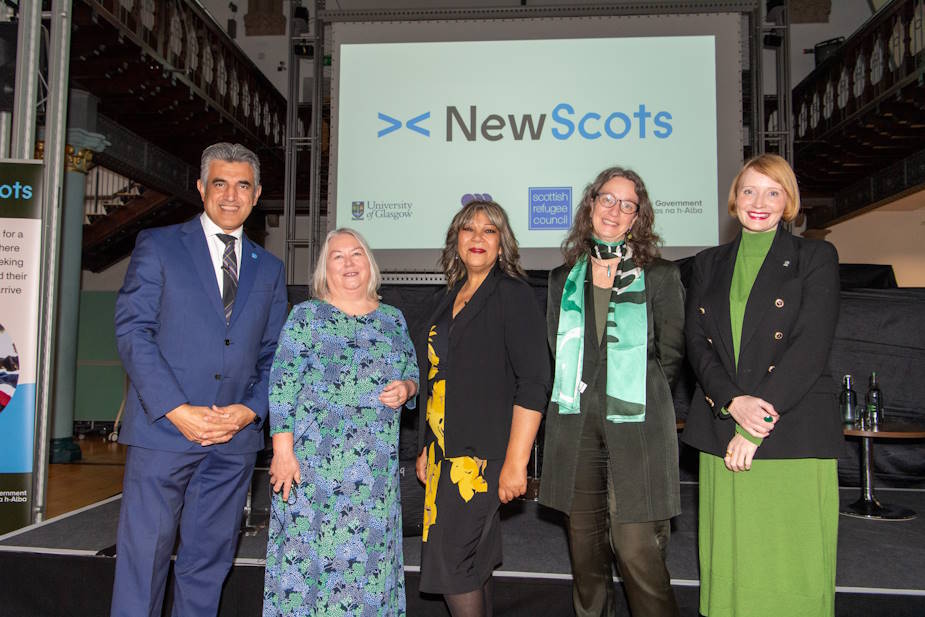
L-R: Sabir Zazai (Scottish Refugee Council), Maureen Chalmers (COSLA), Kaukab Stewart MSP, Prof. Alison Phipps (UNESCO RIELA), Rachel Sandison (University of Glasgow)
The team at the UNESCO Chair for Refugee Integration through Education, Language, and Arts (RIELA) has also been involved in shaping the evolving Strategy and Delivery Plan through a key research report on the local and international dimensions of integrating refugees in Scotland, co-authored by Prof. Phipps, Dr Esa Aldegheri and Dr Dan Fisher. This report reviewed what has worked and not worked in integration policy and practice from 2014 to 2022; presented new ways of understanding integration; and made many (70!) recommendations which significantly inform the updated NSRIS 3.
One key recommendation is the importance of understanding integration as a multifaceted, complex process which must be restorative to work: successful integration must seek to redress harm and restore human dignity. Another essential recommendation, recognised in the NSRIS 3, is that work supporting integration needs to be intercultural, multilingual and trauma informed. The report also recognises the challenges, particularly around resources and funding, which make such work difficult; and highlights the abundant resources of knowledge, community, connections and expertise which exist in communities across Scotland – and in particular amongst New Scots, who carry unique expertise and experience.
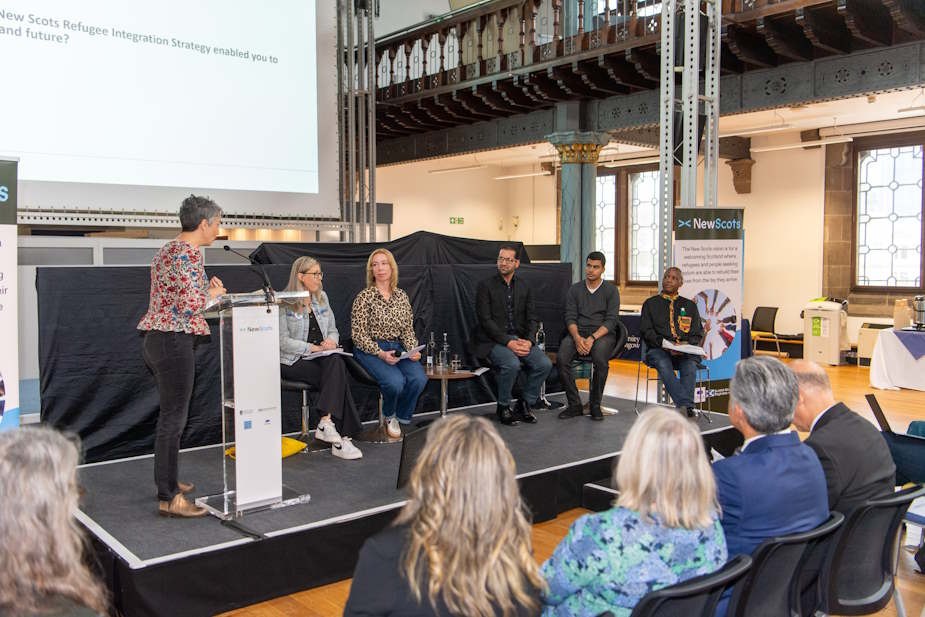
Dr Esa Aldegheri facilitates a panel
This experience was recognised during the event celebrating NSRIS 3: we listened to stories of New Scots from Afghanistan, Ukraine, Yemen and Zimbabwe who shared how their lived experience and work in building integration has been supported by the NSRIS. Facilitated by Dr Esa Aldegheri of UNESCO RIELA, people shared objects which showed some of the tangible results of integration: a beautiful quilt, embroidered by New Scots and people from receiving communities, proudly declaring ‘Aye Welcome Refugees’; photos of a community garden where New Scots grow the food they miss from home and meet new people. The Joyous Choir from Maryhill Integration Network sang and moved many to tears. We also heard words from politicians, people working in community organisations, lawyers, activists. There were New Scots, Old Scots, Old New Scots and even guests from London, all generously compèred by Prof. Alison Phipps. There was poetry from Dr Tawona Ganyamatopé Sitholé, Artist in Residence at UNESCO RIELA. There was, throughout, much applause.
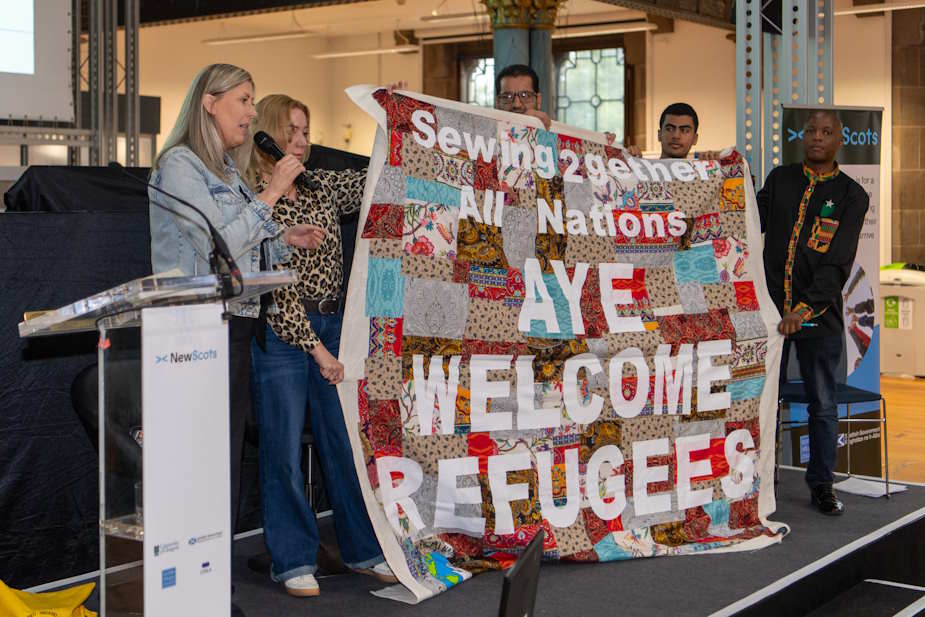
Aye Welcome Refugees quilt
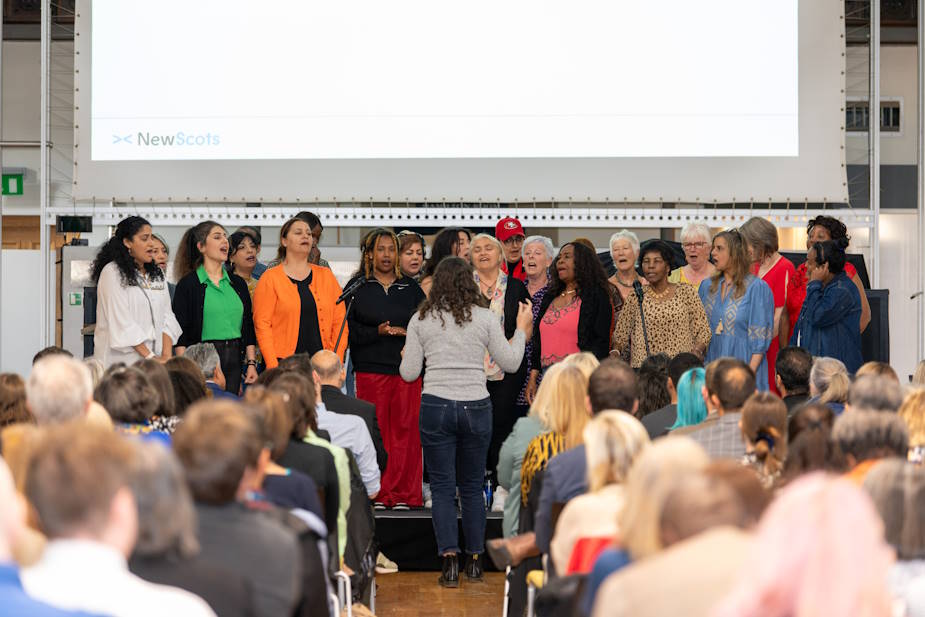
The Joyous Choir
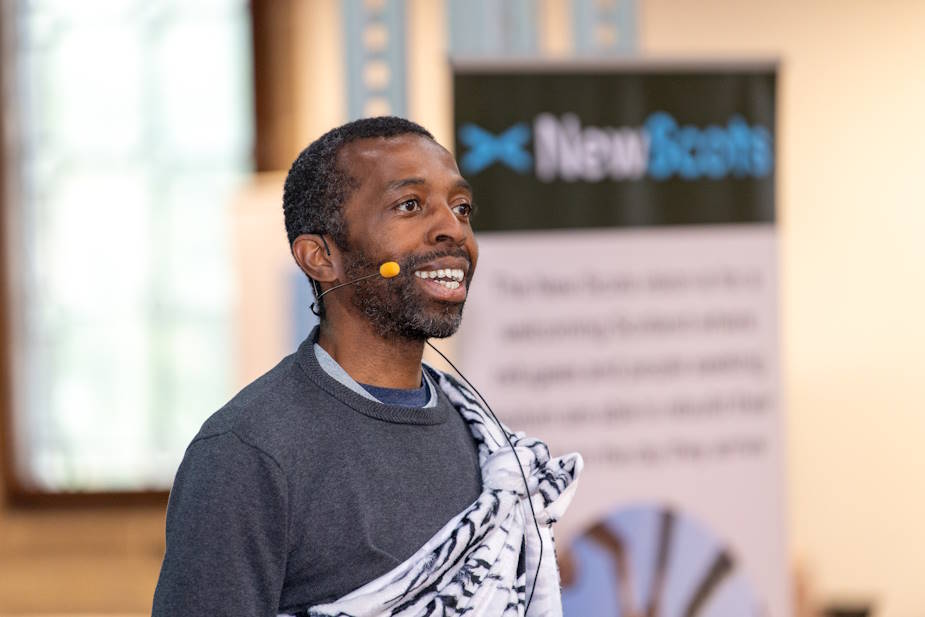
Dr Tawona Ganyamatopé Sitholé
There were also stark reminders of the real and ongoing challenges affecting integration – particularly those linked to scarcity of funding. During her speech, the Minister for Equalities announced that a pilot project which was to provide free bus travel for people seeking asylum had been scrapped. This announcement was made with great reluctance and was met with equally great concern. Nobody present wanted this to be happening, but it was now yet another thing to be added to the long list of challenges to integration.
Despite the challenges, the fact that we were gathered in celebration helped people to connect and find ways to approach challenges. Dr Hyab Yohannes of UNESCO RIELA and Pinar Aksu of Maryhill Integration Network contributed final reflections and reactions. People shared resources of networks, knowledge and skills throughout the event - supported by the knowledge that Scotland has a dedicated strategy which actively welcomes New Scots and supports integration. Conversations were already starting to explore how best to move forward in the daily, quiet, perseverant, creative work which is building integration.
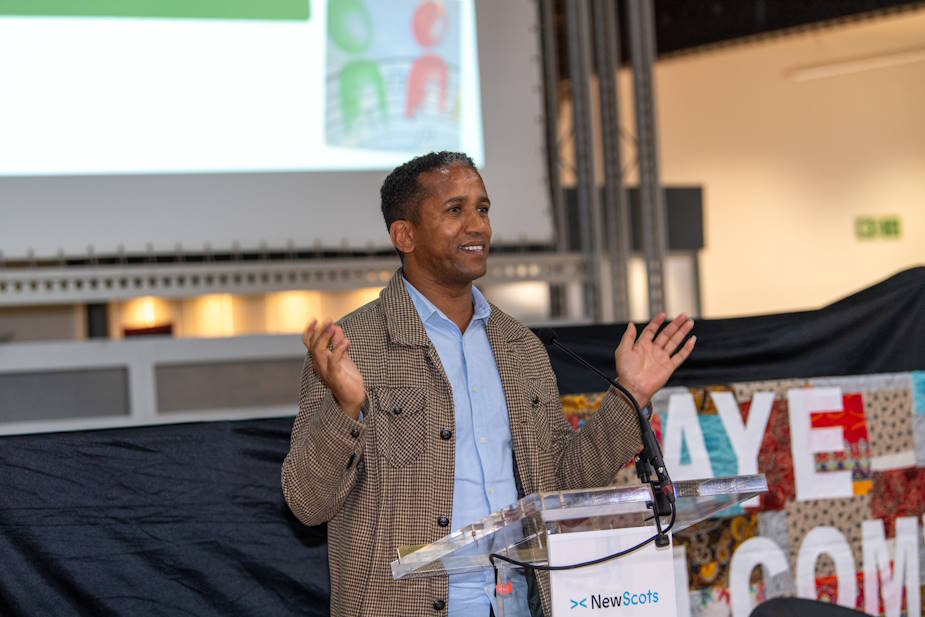
Dr Hyab Yohannes
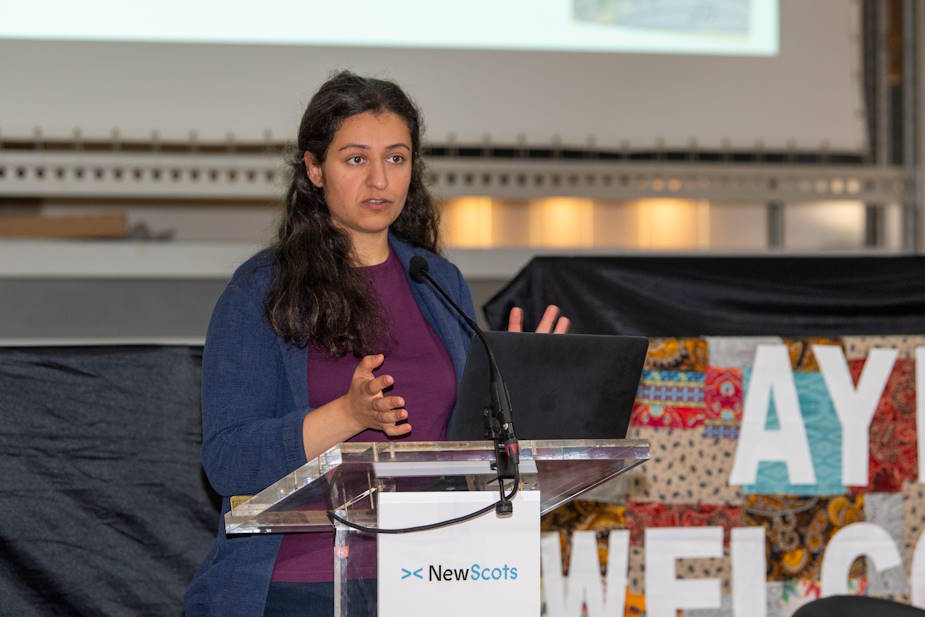
Pinar Aksu
[1] The term 'New Scots' includes people who have been granted refugee status or another form of humanitarian protection, and their dependents; people seeking asylum and people seeking protection as a result of displacement, exploitation or political persecution; as well as those whose application for asylum has been refused, but who remain in Scotland. It also includes people who are or may become stateless and in need of international protection.
First published: 9 September 2024

